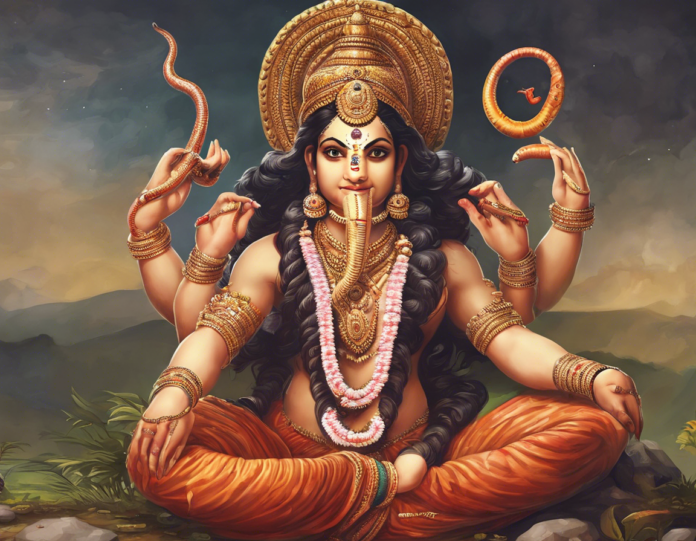Introduction
Celebrated on the fifth day of the bright half of the lunar month of Shravan, Nag Panchami is a significant Hindu festival dedicated to worshipping snakes. Snakes hold a prominent place in Hindu mythology, often representing fertility, protection, and cosmic energy. On this day, devotees offer prayers, milk, honey, and other offerings to snakes to seek their blessings and protection.
History and Significance of Nag Panchami
Nag Panchami has its roots in ancient scriptures and folklore. The festival is believed to have originated from the Nag culture of pre-Aryan times, where snakes were worshipped as they were considered divine beings. In Hindu mythology, snakes have a significant presence, with many deities closely associated with them, such as Lord Shiva, Vishnu, and Subramanya. The serpent god, Vasuki, played a crucial role in the famous incident of churning the ocean of milk, as depicted in the Puranas.
Celebrations and Rituals
The celebration of Nag Panchami varies across different regions of India, but the underlying theme of worshipping snakes remains constant. In some areas, images of snakes are drawn with cow dung outside homes, and turmeric and vermillion are applied to these images. Devotees offer milk, sweets, flowers, and rice to snake idols in temples. Some people observe a fast on Nag Panchami and visit snake pits or ant hills to offer their prayers.
Importance of Snakes in Hinduism
Snakes hold a unique and revered position in Hinduism. They are believed to possess divine qualities and are protectors of the underground treasures and water sources. The snake is also symbolically associated with the Kundalini energy, believed to reside at the base of the spine. By worshipping snakes on Nag Panchami, devotees seek protection from snake bites, infertility, and other afflictions.
Nag Panchami 2023: Latest Updates
As Nag Panchami approaches in 2023, devotees are gearing up to celebrate this auspicious day with traditional rituals and fervor. However, due to the ongoing pandemic situation, it is advisable to adhere to local government guidelines and restrictions while participating in public gatherings or visiting temples. Many temples and cultural organizations may organize virtual events or limited gatherings to ensure the safety of the devotees.
FAQs (Frequently Asked Questions)
Q1: What is the significance of worshipping snakes on Nag Panchami?
A1: Snakes are revered in Hindu mythology and are believed to possess divine qualities. Worshipping snakes on Nag Panchami is considered auspicious and can bring protection and blessings to the devotees.
Q2: Can I observe fast on Nag Panchami?
A2: Observing a fast on Nag Panchami is a common practice among devotees. Fasting is believed to purify the mind and body and strengthen the devotee’s connection with the divine.
Q3: What offerings are typically made to snakes on Nag Panchami?
A3: Devotees offer milk, honey, sweets, flowers, and rice to snake idols on Nag Panchami as a mark of respect and devotion.
Q4: Are there any specific rituals to be followed on Nag Panchami?
A4: The rituals of Nag Panchami may vary across regions, but common practices include drawing snake images, offering prayers, visiting temples, and seeking blessings for protection and well-being.
Q5: How can one celebrate Nag Panchami at home?
A5: To celebrate Nag Panchami at home, you can create a sacred space, offer prayers to snake idols, light incense, and make offerings of milk, sweets, and fruits with devotion and sincerity.
Conclusion
Nag Panchami is a sacred festival that honors the significance of snakes in Hindu culture and mythology. By worshipping snakes on this auspicious day, devotees seek blessings for protection, fertility, and well-being. As Nag Panchami 2023 approaches, let us embrace the traditional rituals and customs associated with this festival while ensuring our safety and well-being in these challenging times. May the divine blessings of the serpent gods bring prosperity and harmony into our lives.



